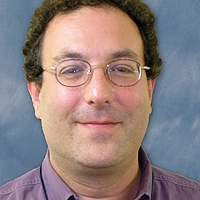Report Offers Tips on Prevention of Bullying
May 28, 2013 / by Andrea Bennett- Research
A new report by a task force co-chaired by Ron Avi Astor, the Richard M. and Ann L. Thor Professor of Urban Social Development at the USC School of Social Work, urges schools to stop using the word “bullying” among its series of recommendations for the prevention of bullying.
The blue ribbon task force was commissioned by USC University Professor William Tierney, past president of the American Educational Research Association (AERA), after several high-profile bullying cases last year.
In a series of 11 briefs, the report, titled Prevention of Bullying in Schools, Colleges and Universities, presented short-term and long-term strategies to address bullying of children and youth. The report was released during the association’s 94th annual meeting in San Francisco.
The researchers contended that the term “bullying” is being overused and applied to everything from eye-rolling to criminal behavior. Definitions, they said, often require mistreatment to be repetitive in order to qualify as “bullying.” Astor and his colleagues urged school and college administrators to use the term “victimization” instead, among other recommendations.
“Huge numbers of students are suffering from school victimization, and schools have the power to alleviate this type of victimization,” said Astor, who is also a professor in educational psychology at the USC Rossier School of Education. “Using existing research and policy based on research could relieve pain and suffering for millions of students each month. This alone may help well-being, social and emotional status, and even increased academic performance.”
The briefs focused on “Looking Beyond the Traditional Definition of Bullying,” “Bullying as a Pervasive Problem,” “Bullying and Peer Victimization Among Vulnerable Populations,” “Gender-related Bullying and Harassment: A Growing Trend,” “Legal Rights Related to Bullying and Discriminatory Harassment,” “Improving School Climate: A Critical Tool in Combating Bullying,” “Students, Teachers, Support Staff, Administrators and Parents Working Together to Prevent and Reduce Bullying,” “Putting School Safety Education at the Core of Professional Preparation Programs” and “Reinvigorated Data Collection and Analysis: A Charge for National and Federal Stakeholders.”
The task force was charged with identifying the causes and consequences of bullying in schools, colleges and universities; highlighting training and technical assistance opportunities to help faculty and staff at all types of educational institutions effectively address bullying; evaluating the effectiveness of current anti-bullying policies and bullying prevention programs; and assessing the connections between bullying research and interventions.
The report has received widespread media interest since its release, with coverage in The Washington Post, USA Today, Education Week and Inside Higher Ed. Astor said that each member of Congress has received a copy of the report, and future congressional briefings are being scheduled on the subject.
“AERA and education researchers are now taking the lead to provide scientific evidence for the general public on the issue of bullying,” Astor said. “We owe it to this generation to initiate a massive national anti-victimization at school effort based on science.”
To reference the work of our faculty online, we ask that you directly quote their work where possible and attribute it to "FACULTY NAME, a professor in the USC Suzanne Dworak-Peck School of Social Work” (LINK: https://dworakpeck.usc.edu)
